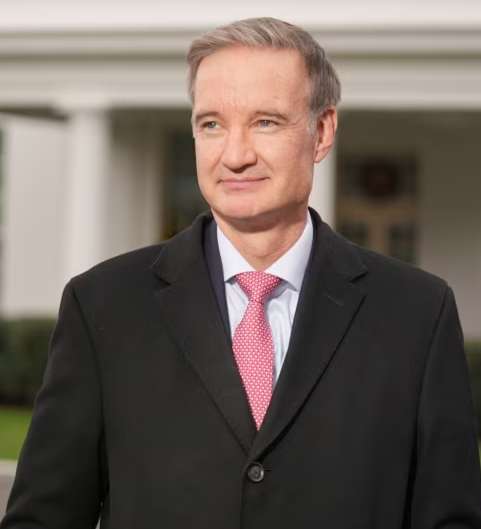Diplomat Expresses Concerns Regarding Trump’s Claim of Swift Ukraine War Resolution.
Paragraph 1: The Biden Administration’s Final Push for Ukraine
As the Biden administration prepares to transition power, its focus remains firmly on bolstering Ukraine’s defense and solidifying its position for future negotiations with Russia. National Security Council’s Michael Carpenter, in an interview with VOA Ukrainian Service, affirmed the administration’s commitment to exhausting all authorized security assistance funds for Ukraine by the end of the year. While some equipment deliveries may extend into 2025 due to contractual obligations, the financial commitment remains unwavering. This final push emphasizes the critical need to stabilize the front lines and provide Ukraine with the necessary resources to negotiate from a position of strength.
Paragraph 2: Prioritizing Air Defense and Addressing Challenges
Carpenter underscored the paramount importance of air defense systems for protecting Ukrainian cities and critical infrastructure from relentless Russian attacks. While Patriot systems are ideal, smaller-scale air defense solutions are also crucial. However, securing these systems presents a significant challenge due to depleted stocks among Western allies. Despite these difficulties, the administration is actively engaging with partners to explore all available options to bolster Ukraine’s air defense capabilities before winter sets in.
Paragraph 3: Setting the Stage for Future Negotiations
Carpenter highlighted the necessity of a strong Ukrainian position for any successful negotiations with Russia. Stabilizing the front lines, if not reversing the current momentum, is crucial for Ukraine to approach negotiations from a position of strength. This, he argues, will require sustained support and resources extending into 2025. Carpenter refuted the notion of Russia’s overwhelming strength, pointing to significant Russian casualties and economic vulnerabilities. He emphasized that regardless of the administration in power, providing Ukraine with the resources needed for a strong negotiating position is an objective necessity for protecting its sovereignty.
Paragraph 4: The Broader Geopolitical Implications of the War in Ukraine
Carpenter stressed the global significance of the war in Ukraine, emphasizing its connection to broader international security concerns. He argued that the war’s outcome has far-reaching implications for the international order, impacting issues from Chinese influence and unfair market practices to intellectual property theft. The fundamental principle at stake in Ukraine, he asserted, is the inviolability of borders and national sovereignty, which underpins the entire international system. Supporting Ukraine is therefore not just about a regional conflict, but about safeguarding the foundation of global security.
Paragraph 5: NATO Membership and the Path to Security Guarantees
While acknowledging that the decision on Ukraine’s NATO invitation rests with the incoming administration, Carpenter emphasized the importance of NATO membership for Ukraine’s long-term security. He highlighted Article Five’s collective defense guarantee as unmatched and essential for Ukraine’s protection. He acknowledged the complex process of achieving NATO membership, requiring consensus among all 32 allies, and emphasized the need for interim security assistance and guarantees until Ukraine can benefit from Article Five protection. Carpenter underscored that the Biden administration would support future discussions on NATO membership and offer guidance to the incoming administration on this crucial issue.
Paragraph 6: Reflecting on the Biden Administration’s Response and Lessons Learned
Carpenter acknowledged that future analysis will be needed to fully assess the Biden administration’s response to the war and identify potential areas for improvement. He emphasized the evolving nature of the conflict, with different phases requiring different capabilities. He pointed to limitations in pre-existing stocks of critical weapons systems, such as ATACMS missiles, among Western allies. Carpenter underscored the significant manpower challenge facing Ukraine and the need for a comprehensive strategy that addresses recruitment and training alongside equipment provision. He emphasized the importance of increased investment in the US defense industrial base and highlighted the need for European allies to ramp up their production of key capabilities, particularly air defense systems and ammunition.
Share this content:












Post Comment